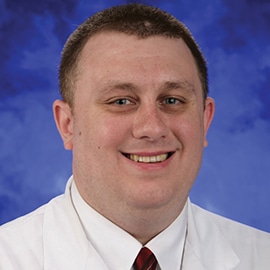
The American Cancer Society estimates that 1 in 9 men will be diagnosed with prostate cancer during his lifetime, primarily in men age 65 or older. Prostate cancer can be a serious disease, but most men diagnosed with prostate cancer do not die from it. Men who are diagnosed with stage I, II or III prostate cancer have a five-year survival rate of nearly 100 percent. Stage IV cancer has a much less optimistic prognosis, so early detection is a significant factor in high survival rates.
With this in mind, all men age 55-69 should get a prostate-specific antigen (PSA) blood test and a digital rectal exam to screen for prostate cancer at least every other year.
Individuals with a strong family history – father or brother diagnosed with prostate cancer before age 65 – should have screening as early as age 45. Prostate cancer often has no symptoms, but may cause difficulty with urination, more frequent urination or frequent urination during the night. These same symptoms, however, can indicate a benign prostate enlargement. Screening by a primary-care physician or a urologist will help determine whether you may have cancer.
Testicular cancer is rare and considered a cancer of the young, usually affecting men age 15-35. The most common symptom is a palpable lump on the testicle.
Men should perform monthly self-exams for testicular cancer, similar to monthly breast self-exams recommended to women.
If you feel something abnormal, get it checked out by a urologist. The earlier it’s found, the better the prognosis.








